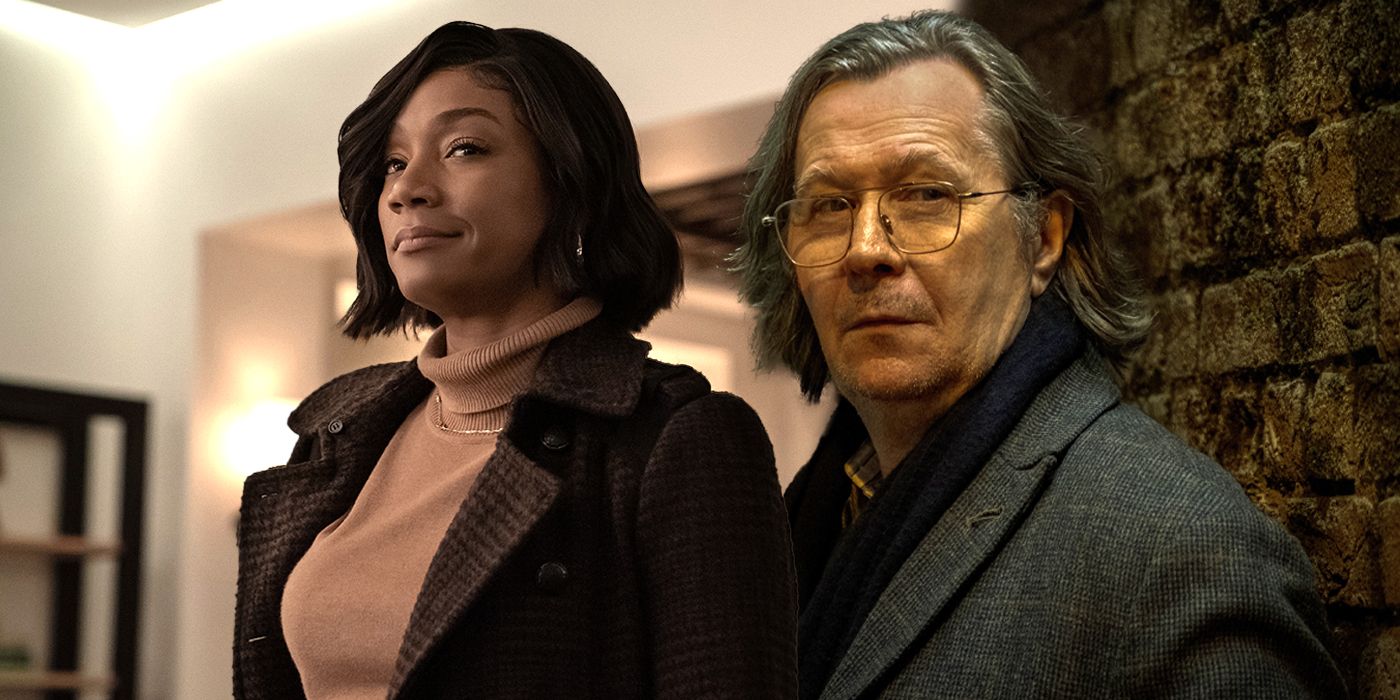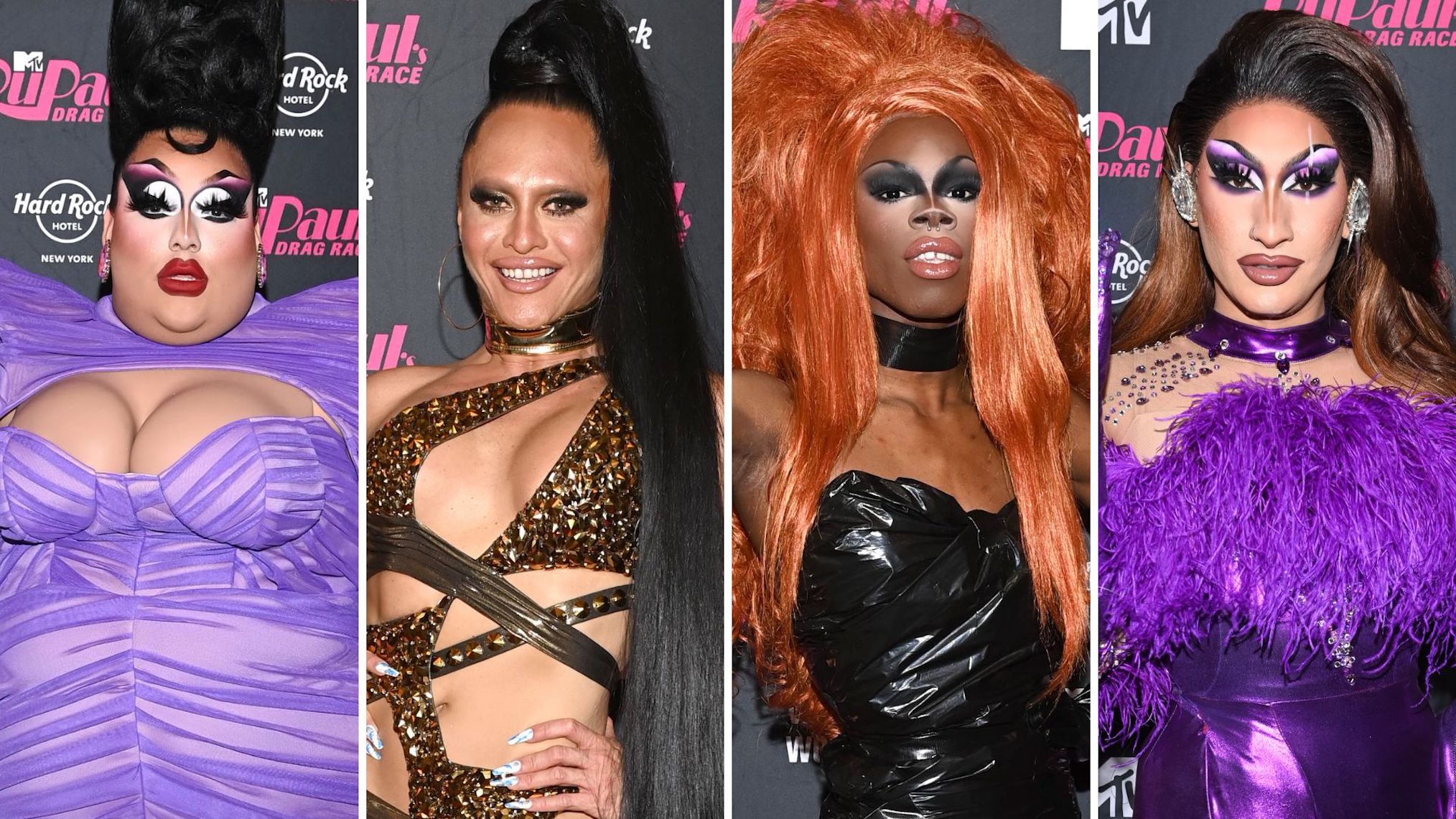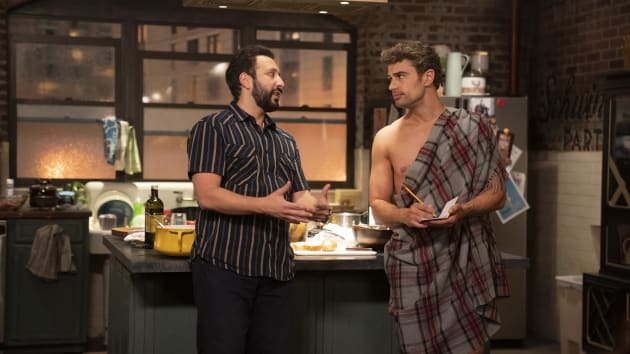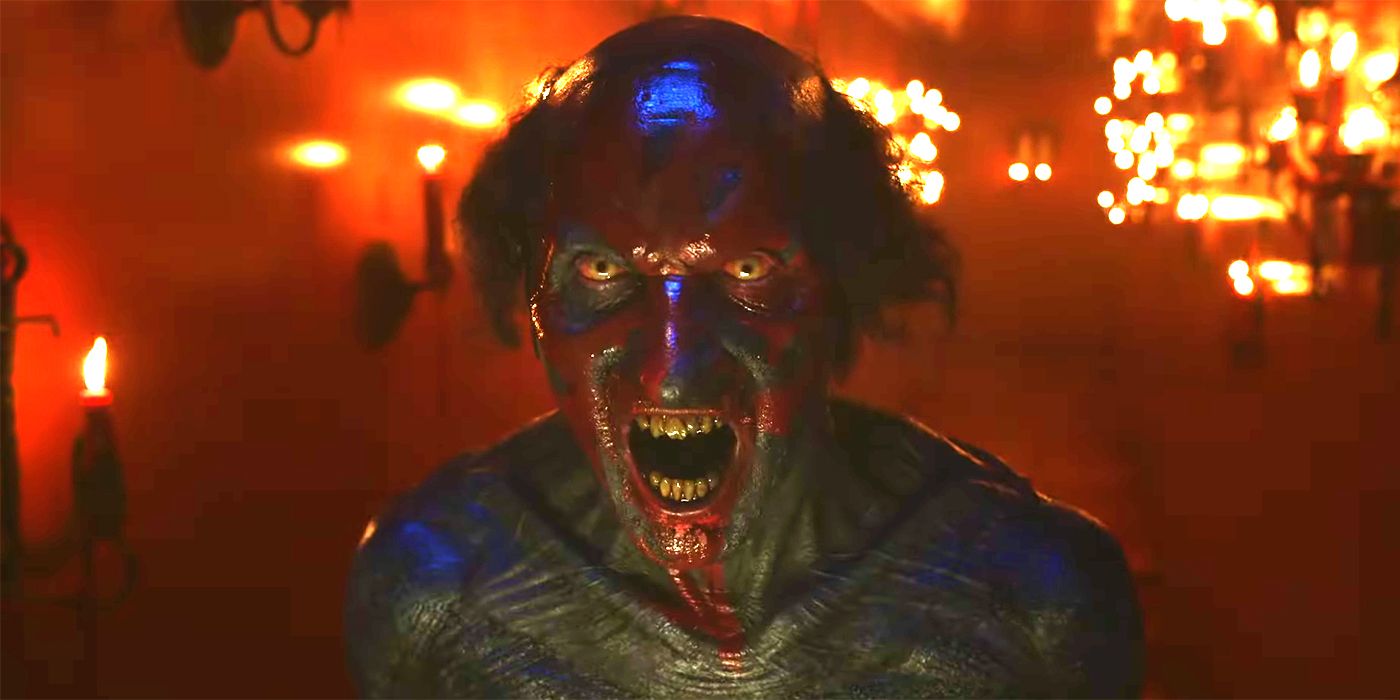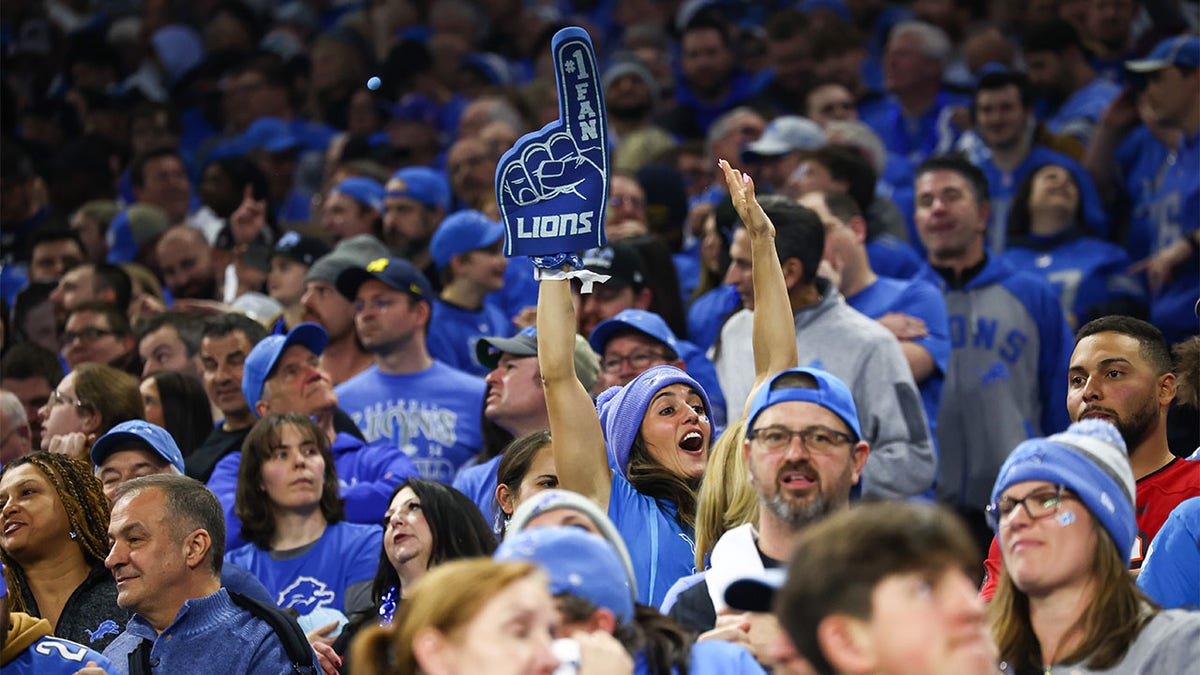Over nearly 15 years of work, Daniel Pemberton has quickly become one of the most iconic composers in Hollywood. Initially working on indie horror gems The Awakening and In Fear, Pemberton has risen to stardom with his work on the likes of Steve Jobs and Motherless Brooklyn, for which he earned Golden Globe nods, The Trial of the Chicago 7, which earned him both an Oscar and Globe nod for Best Original Song, and Spider-Man: Into the Spider-Verse.
Most recently, Pemberton provided his talents to two Apple TV+ series, The Afterparty and Slow Horses. The former, created by Spider-Verse‘s Christopher Miller, is a murder mystery comedy about a group of people celebrating their high school reunion, only for one to end up killed and everyone is a suspect. Slow Horses is a spy thriller series centered on a British MI5 officer exiled to an administrative purgatory assignment after a botched training mission, leaving him to endure dull tasks with his colleagues.
Ahead of both shows being presented to Emmy voters, Screen Rant spoke exclusively with Daniel Pemberton to discuss both The Afterparty and Slow Horses, navigating the various genres of the murder mystery, working with Mick Jagger for the spy thriller and more.
Screen Rant: The Afterparty was an absolute delight, and the way your music goes through so many different genres just flows through it excellently. What was it like crafting the score and all the different tracks for that show?
Daniel Pemberton: The Afterparty was a huge, huge daunting task, because you’re doing not just quite a complicated series score, which is the meat of the whole story, but alongside that, you’re scoring 10 other shows and a load of other stuff, like producing songs. Making weird things like the “Hungry Hungry Hippos” theme tune and a pretend to Hall & Oates song that won’t get you sued.
There’s so many bits in that series. It was such a gigantic task, so I’m pleased you enjoyed it, because it was a lot of work, a huge amount of work.
As we were just talking about, you have that prior relationship with Phil Lord and Christopher Miller. Was it your work on Spider-Verse that got the ball rolling for you to come on to The Afterparty?
Daniel Pemberton: Well, I kind of actually know them before Spider-Verse, we chatted and met and hung out in London quite a bit. They’re really cool guys, I love them, I love hanging out with them, they’re really funny. They’re kind of exactly what you’d expect them to be, in a way. I think doing Afterparty is a particular challenge, because you have to be well-versed in jumping between so many different genres.
Through my other work, my film work, I am always doing things that are quite different. I didn’t do the same thing over and over again, so I think that helps as well, in the sense they could see I could work doing orchestral music, electronic music, jazz music, whatever else. I think that was a big part of getting me on board as well.
Which genres in the show would you say were the most fun to tackle and which would you say were the most challenging to tackle?
Daniel Pemberton: The ones that were the most fun were the ones where I could write music that I wouldn’t normally dare. Normally I try and always go against what is the norm. Generally, if I try and score things, I try and do things that I’m trying to do something sort of fresh and different. The film feels more exciting if the film feels differently. But you do that in this show within the genres, it doesn’t feel like a genre then, if you re-score the action film in a very different way, it’s not going to feel like an action film that you’ve seen before. So it was quite good fun to actually sort of do the most obvious stuff.
I think one of my favorites was the rom-com, because I get to be quite cheesy and am satisfying the emotionally, quite cheesy music that I would never dare do normally, but now I had a reason to. Thriller’s always fun to do, Brett’s action stuff was quite good fun as well, just because it was like getting to really ludicrous rock-style scoring. It’s quite influenced by things like John Wick, slightly more modern types of scoring. But it’s just fun really going for it in a way that I wouldn’t normally.
But the biggest challenges were genres where there isn’t a style of music that’s 100 percent associated with that, so I’d say the kid’s film, Maggie’s film, was difficult. And the Danner cop story, because it’s like, is there a distinctive sound, is there a score that defines this genre? There isn’t really with either of those, Maggie’s story would suddenly go very hyperactive, kind of influenced a lot by kids’ TV scoring, and Danner, the point of reference was the film Training Day.
I just have to look at what made those scores work and I would look at both the equipment, the musicians, the technology used and tracking, so it feels as authentic as possible. So, you know that one would be like sampled percussion with some sort of synths or maybe something with lives, when you look at the thrillers, we do that all live with an orchestra. Then you look at Maggie’s story, for instance, it’s a kids’ TV show, they often don’t have much money, as a composer you don’t have a lot of budget, so you do it all on synths. So I’m trying to replicate not only the sound and the style of the genres, but also the working methods that composers would have within each of those genres, so it feels more authentic.
what was it like for you putting together the team of musicians to help bring your score to life for the show?
Daniel Pemberton: Well, I mean a lot of it is me, partly because of the pandemic. All the orchestral stuff we did remotely, so that was more straightforward, because that’s orchestral recording, but most of the other stuff is me doing anything, like programming and playing stuff? It was all hands on deck, because there wasn’t enough time or enough other things. It was exhausting. [Chuckles] I can’t tell you how exhausting it was.
I had to produce the songs in the musical episode. But that’s the thing I love about their shows is they put so much detail and so much effort into everything, hidden clues, storylines that take you somewhere else, jokes that are unbelievably complicated to execute, literally like a throwaway three-second gag. They’re pushing on every level, the production designers, the script writers, everyone’s pushing it, so you’ve got to kind of be the same as a composer.
I think you did a phenomenal job on that show. I have yet to get around to Slow Horses, but I do find it really interesting that the show is blowing up as it is, and the work that you’ve done on that with Mick Jagger as well. What was it like for you coming on to that show?
Daniel Pemberton: I mean, that was great, totally different approach. In terms of the score, it’s got a very distinctive sound, which took a long time to like develop, I wanted to kind of make something that felt sort of very low-fi and wonky, because it’s this series about these spies, who were basically a bit crap and get shunted off to this crappy office. So I didn’t want the music to feel slick, I didn’t want it to feel like a normal spy thriller score. I wanted to feel like it was all slightly falling apart and a bit wonky, so I built a lot of crazy sounds.
Then we have this other world, this for MI-5 world called The Path, and that is all very slick electronics. So we had the sound world and these kind of thematic ideas and I was like, “We should try and turn this into a song for the theme tune.” But I never thought we would get Mick Jagger, but he loved it. He heard what I’d done, he’d heard some stuff of mine before and he doesn’t do anything like this ever. It was so exciting for him to respond in such a great way to what we’ve done, he wanted to come on board and just getting stuff from him and writing with him, it was amazing.
He was so good at nailing what the show was about straight away, first pass. We discussed what we wanted to get, what I wanted to get out of the song, what the director wanted. We did some calls and then the first thing we get in, I’m like, “This is brilliant. You’ve nailed the entire idea of the show in a 40-second title sequence and that is hard to do.” Even if your job as a film or TV composer is trying to nail the entire idea of a series in a theme tune, it’s really hard. Mick Jagger’s job is not nailing an entire series that’s going to run and run and run in 30 seconds. He’s out being a rock superstar, but he did it first pass. Amazing, what a legend.
Mick Jagger has that legend status for a reason. I’m curious, Slow Horses just got renewed through season 4 and then we’ve got The Afterparty season 2 in the works. Are you coming back for those future seasons on both shows?
Daniel Pemberton: I’m working on season 2 at the moment with these guys, Toydrum, who are great friends of mine. So we’re trying to spread the load a bit between us, because I physically cannot do six hours of a TV series while still trying to do a million films and I still write everything myself. I don’t have a team of people who write for me and I pretend I wrote it. Not saying there any other composers out there doing that, but maybe there are, but it’s got my name on it, I’m writing all the music. It’s got someone else’s name on it and my name, we both are writing the music. So yeah, literally dealing with that at the moment, second series is really exciting, takes a whole different avenue. We’re going for a slightly different sound. So yeah, season 2 is underway at the moment, season 3 and 4, I don’t know, let’s see how season 2 goes.
And then are you back for Afterparty season 2 as well?
Daniel Pemberton: I don’t know yet actually. [Chuckles] Afterparty is one of the most complicated things you could ever do as a composer and I’ve been locked in this room for two years. But yeah, I definitely want to get involved, I will definitely be involved in some way in Afterparty 2, for sure, because it’s fantastic. It’s such a great series, such a great show.
Speaking of Chris and Phil, before I go, I do want to ask about a little bit about Spider-Verse. The soundtrack on that first film was so well received, both your score and the songs written for the film. What was it like for you seeing the reception to the soundtrack of the first film?
Daniel Pemberton: Well, it’s kind of weird. When Spider-Verse came out, people didn’t care that much for it. Everyone now loves Spider-Verse, but when Spider-Verse came out, I went to the cinema the first week it came out in the UK. There weren’t a lot of people there that night and I remember telling people, “I’ve just done this movie is one of the most amazing movies I’ll probably ever do in my life.” “Oh, what is it?” “It’s Spider-Man” and they’re like, “Oh, Spider-Man? They’re making another Spider-Man movie? I don’t care about Spider-Man.” Then you go, “No, no, it’s an animated Spider-Man movie,” and then they’d be like, “It’s a cartoon.” You can see them just going, “I am so not going to watch this thing.” These are friends of mine, okay?
And then a year later, ‘Oh, my god, I just watched Spider-Verse. It’s one of the most amazing things I’ve ever seen.” I’m like, “Yeah, I told you that ages ago.” I’ve had that multiple times. What’s interesting about Spider-Verse, I think, is when it came out, it did okay, but for a film that I think is one of the most groundbreaking, the highest-rated superhero movie of all time, people didn’t get it when it first came out. They’ve got it now and that’s really fun to watch people discover it, because I think that makes everyone feel like it’s their movie. With things like The Avengers and these other things, there is a massive corporate machine behind it and it’s kind of just the machine. But I think the thing about the Spider-Verse is I think so many people feel it’s like theirs and they discovered it, so I’m very excited to see how they respond to the sequel.
Because I think all of us — when I was making Spider-Verse, it was insanely tough. I was actually working in LA, started like 11 in the morning till 1 or 2 in the morning, mostly. And then I would repeat every day at Sony in that small little office by the end and it was exhausting. But you would keep going, because everyone on this film knew they had something really special. I remember when I was in there and wrote the “Leap of Faith” music, I was there with Katie [Colley] and we were trying to work through the scene and I literally just went, “What about this?” and I was like, “F–k, that was good” in my head. I turned around to her like, “What do you think of that?” and she was like, “That was amazing.” She said, “You recorded it, right?” I was like, “No. I think I can remember what I did.” [Chuckles] So then I did it again and you played it and I also remember thinking, “That is going to be a moment that people will really remember for decades.”
All the Prowler sounds and these kind of things, you get things and you’re like, “Oh, this is really special,” but you always expect it comes out and the next day you get a phone call, it’s like Steven Spielberg or something saying congratulations. That’s the best thing I’ve ever seen or heard, but it doesn’t happen. But slowly it does. Spidey is gonna be around for a long time.
Do you think people will respond as well as they did with for Across the Spider-Verse when it comes out?
Daniel Pemberton: Well, I hope so. I think all of us on it are really pushing for it to be the best it can be. I’m really pleased, we’ve got more time on it, I’ve seen what they’re trying to do and it is amazing. Some of the ideas and techniques just feel really groundbreaking. I think sometimes when people make sequels, they’re like, “Let’s just bash this out quickly, no one will care, we’ll make loads of money.”
But there’s a thing I think when you let people down who had a lot of hope. I think it started with Phantom Menace, there was so much hope for this film and expectation and it was the first time I think people started to really feel let down. I think with Spider-Verse, we got a chance to really do something magical and I think all of us on it know that. It’s going to sort of consume my life, well it’s really consuming their lives. I’m keeping my hands clean for a month or so and then I’m going to be all on it.
The Afterparty Season 1 Synopsis
The Afterparty centers on a murder mystery at a high school reunion. Each of the eight episodes features a retelling of the same night told through a different character’s perspective, each with its own unique visual style and film genre to match the teller’s personality
Slow Horses Season 1 Synopsis
This darkly funny espionage drama follows a team of British intelligence agents who serve in a dumping ground department of MI5 due to their career-ending mistakes. Led by their brilliant but irascible leader, the notorious Jackson Lamb, they navigate the espionage world’s smoke and mirrors to defend England from sinister forces.
The Afterparty and Slow Horses are streaming on Apple TV+ now.
About The Author















































